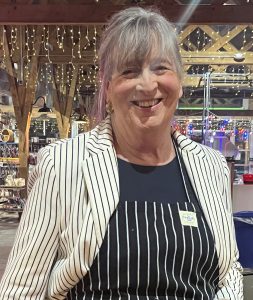 Today we’d like to introduce you to Paula Camp.
Today we’d like to introduce you to Paula Camp.
Hi Paula, we’d love for you to start by introducing yourself.
Oh my! It’s a long story. I’ll try to make it short.
I was born in a small town in Illinois. My grandparents were berry farmers in Harrison, MI. As a toddler, I “helped” on the farm in the summer taking ice water to the pickers. When I was older, I picked berries myself along with various misadventures on the farm. The experience gave me a deep love of Michigan, respect for the hard work of farming, and appreciation for the wonderful fresh fruit Michigan has to offer.
As an adult, I spent decades as a journalist, editor, and content producer. While in New York City working for a business magazine aimed at the retailers of specialty food products, I had the privilege to interview such food luminaries at Julia Child, James Beard, and Jacques Pépin. Child was the most entertaining. Beard was imperious. Pépin stood out as the most interesting. He gave us a tour of his garden, showed us a cold smoker he made from an old 1950s refrigerator, and then made lunch for us. Lunch consisted of greens picked that day from the garden, trout smoked in his smoker and then he took us outside to a small brick structure tucked partially into a hill going up to his New Haven, CT home. He opened the door, flipped on a light, and what appeared to be hundreds of bottles of Champagne lined the walls.
The bottles held cider Pépin had made himself. The amber liquid inside was served alongside the simple lunch and was revelatory. It was the first time I have ever tasted European-style hard cider and it was delicious.
Shortly after the story about Pépin was published and then syndicated to newspapers and magazine throughout the U.S., I was invited to join the Chicago Tribune as a food writer. I moved back to the Midwest and soon bought an historic home in Benton Harbor. I did not know at the time that Benton Harbor had once been the fresh produce capital of the world, host of the world’s largest produce market, which still exists in scaled-down form today. As we explored the countryside around our new home, we discovered apples, literally tons of apples. One orchard sported more than 200 varieties of apples I had never heard of, much less tasted. Thus began a life-long hobby of trying to recreate that taste experience from my interview with Pépin.
I became the restaurant critic for the Tribune, then a lifestyle section editor and features editor. We raised a family traveling between homes in Chicago and Michigan as often as practical. And tasted exotic, unfamiliar apples and putting many of them into cider along the way.
Throughout these years, I was in hiding, scared I would be discovered, ridiculed, and abandoned. I am a transgender woman. I knew I was different even as a youngster, but growing up in small-town America in the 50s and 60s there was no language to describe me, no role model for me to follow, no way to comprehend what I was feeling. During that time, they out people like me in jail or worse, into mental institutions because we were not “normal.”
It took until I was in my 60s for me to finally admit to myself who and what I am. It was not easy. My partner, Mary, and I had just sold Content That Works, a successful content business we launched and grew together. We move to work for the buyer for a year of transition. And I finally could not deny my being any longer. I found a great therapist, came out to Mary, then my family, and eventually my friends and colleagues. It was one of the most difficult things I have ever done. It was also the best thing I ever did. I admitted that I am Paula, female, and enough in 2016.
When we came back to live full-time in Michigan my “hobby” had grown into producing many 60-gallon barrels of cider every fall. It had outgrown our basement. We decided to renovate the carriage house built in 1886 into a cidery and begin selling cider commercially. It took some doing. Mary dragging more than four TONS of junk out of the old building. Most of the trash as not even ours, but the detritus of life accumulated over more than 130 years.
We finally opened Carriage House Ciders in 2021. Our cidery is dedicated to producing dry, European-style ciders made from classic cider apples and unusual heritage apples. One of our ciders, Debutant, is crafted from Jacques Pepin’s recipe published in his cookbooks.
We are tiny. We actually look at every apple that goes into our ciders twice: once when we sort them and again when we wash them. We use a minimum of chemicals and nothing artificial. Most of our ciders are wild yeast fermentations. Almost all of the sparkling ciders are naturally carbonated through secondary fermentation in the bottle.
That’s our story.
I’m sure it wasn’t obstacle-free, but would you say the journey has been fairly smooth so far?
The road has be neither smooth nor straight.
I personally saw four or five therapists on my journey before I found one who really helped me. It took a long time. I was not always a good person. Along with my accomplishments, I often hurt those who loved me the most. I wish I could have been less scared and true to myself much sooner.
I was once heckled by a group of firemen buying their dinner supplies while I was in line at a supermarket. I saw parents drag their kids across the street to avoid passing by me when I was first transitioning and learning how to present more like the woman I am. We were yelled at by protestors at a gay pride event… Today I really don’t care what you think of me. However, I worry about everyone who is different in some way, especially the youth who are coming up today.
Professionally, the cidery has been an act of love. When the pandemic hit, we questioned whether we should move forward. There were many regulatory hurdles, especially given our facility is more than 130 years old and does not look like modern wineries/cideries with their cement floors, smooth walls of modern materials, and stainless-steel vessels for making the product. We ferment and age exclusively in oak barrels. The walls are the original pine from 1886. We are different, and some regulatory officials didn’t get it. It was a struggle to get approval for what we are doing. We still have no tasting room, for example, because our local authorities believe it will be disruptive to our neighbors. Trust that we are working to overcome this.
But everything good in life is worth working for, really. There remain many challenging days. Still, I have never been happier. I want to prove that an elderly transgender woman can successfully launch and grow a business dedicated to authenticity from the way we treat customers and co-workers to the ciders you taste.
Alright, so let’s switch gears a bit and talk business. What should we know about your work?
We make cider. Oops. That’s not really true. We believe that mother nature makes the best cider. Our job is to help her along as best we can from time to time. That’s why no two four ciders is the same. Nature is quirky. Some varieties of apples are biennial, meaning they only product ever other year. So, our ciders don’t always taste the same from one year to the next. While some cider makers strive for consistency, we think going with the flow and making the most of what nature gives us every year is our competitive advantage.
We are proud of our ciders. But what I am most proud of is my family who have supported me through all of this. My family and the many friends and co-workers who have lent a hand provided counsel and offered their love. I hope that as a boss, an employer, a leader perhaps, I have grown to the point that the people I work next to know that I so appreciate them, who they are, and their hard work. Making cider is not easy, especially the way we do it. There’s a lot of tough manual labor in sometimes cold, wet conditions. Many people have had a hand in making the ciders we hope you enjoy, and every contribution, from cleaning the equipment to stacking boxes is important to the quality of the final product.
Where we are in life is often partly because of others. Who/what else deserves credit for how your story turned out?
My partner, Mary, deserves huge credit, she did not choose to be with a woman. It was thrust upon her when she least expected it. I have given her SO MANY reasons to leave me. To me, Mary is the definition of love as demonstrated through her support and fierce loyalty. I could not have transitioned without her. And Carriage House Ciders could not be without her. Despite the fact that she says, “I want nothing to do with the cidery,” she is constantly involved, innovating and improving what we do.
There are so many others: All of the transwomen and men who went before me. Examples of women who launched and built successful businesses by being authentic. Older adults who risked everything to realize a dream. I follow their lead with awe and admiration.
Pricing:
- Our ciders are all bottle in 750 ml bottles like wine. The price ranges from $16 to $25
- We ship to 41 states…
- People can visit our cidery for tours even though we do not yet have a tasting room.
- In the fall people can come make cider with us and have what we call the Cider Experience, which includes a family-style farmhouse dinner featuring all local food.
- Wedding parties can make their own cider and then use it for their wedding toast.
Contact Info:
- Website: chciders.com
- Instagram: https://www.instagram.com/carriagehouseciders/
- Facebook: https://www.facebook.com/carriagehouseciders/
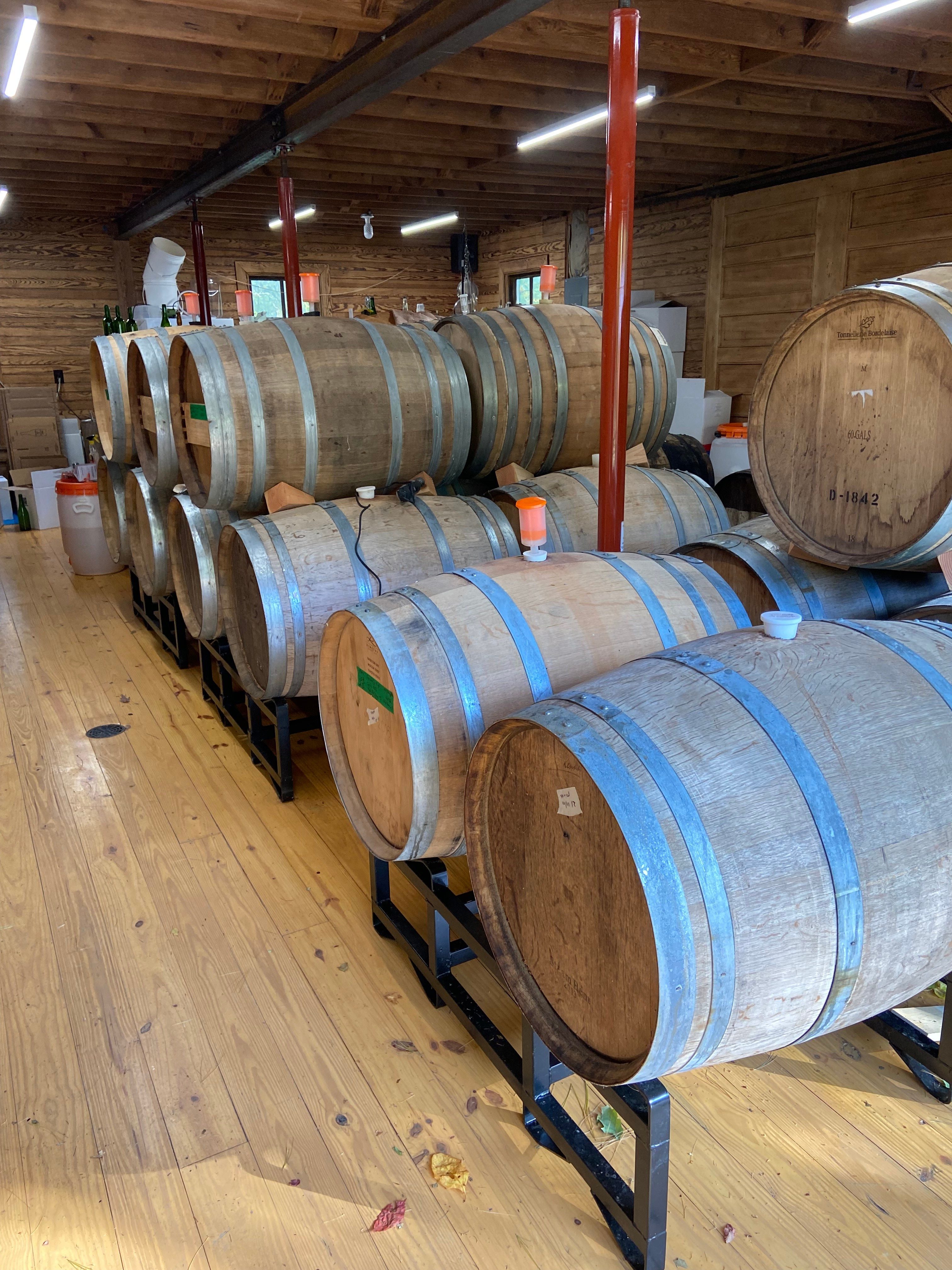
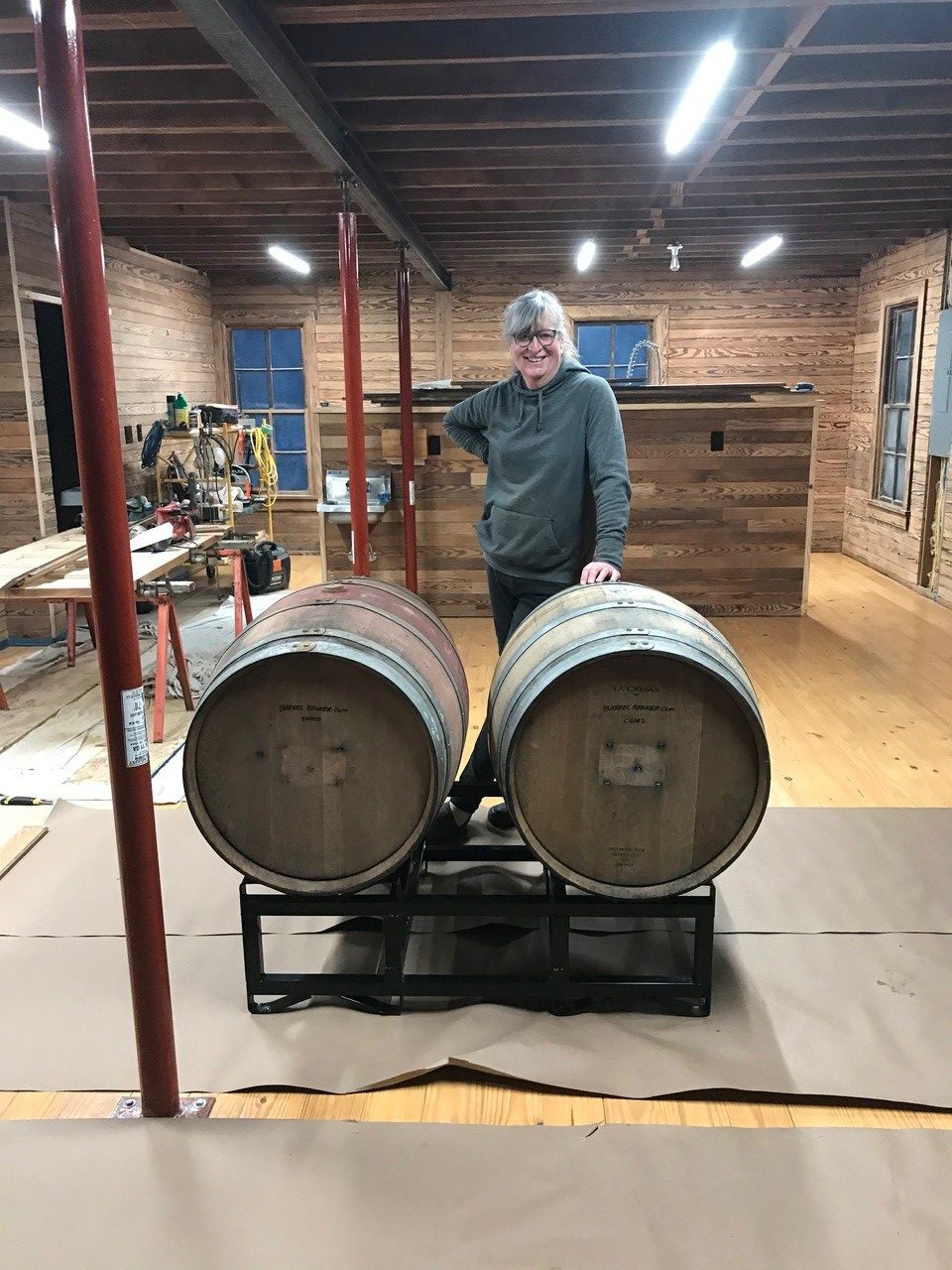
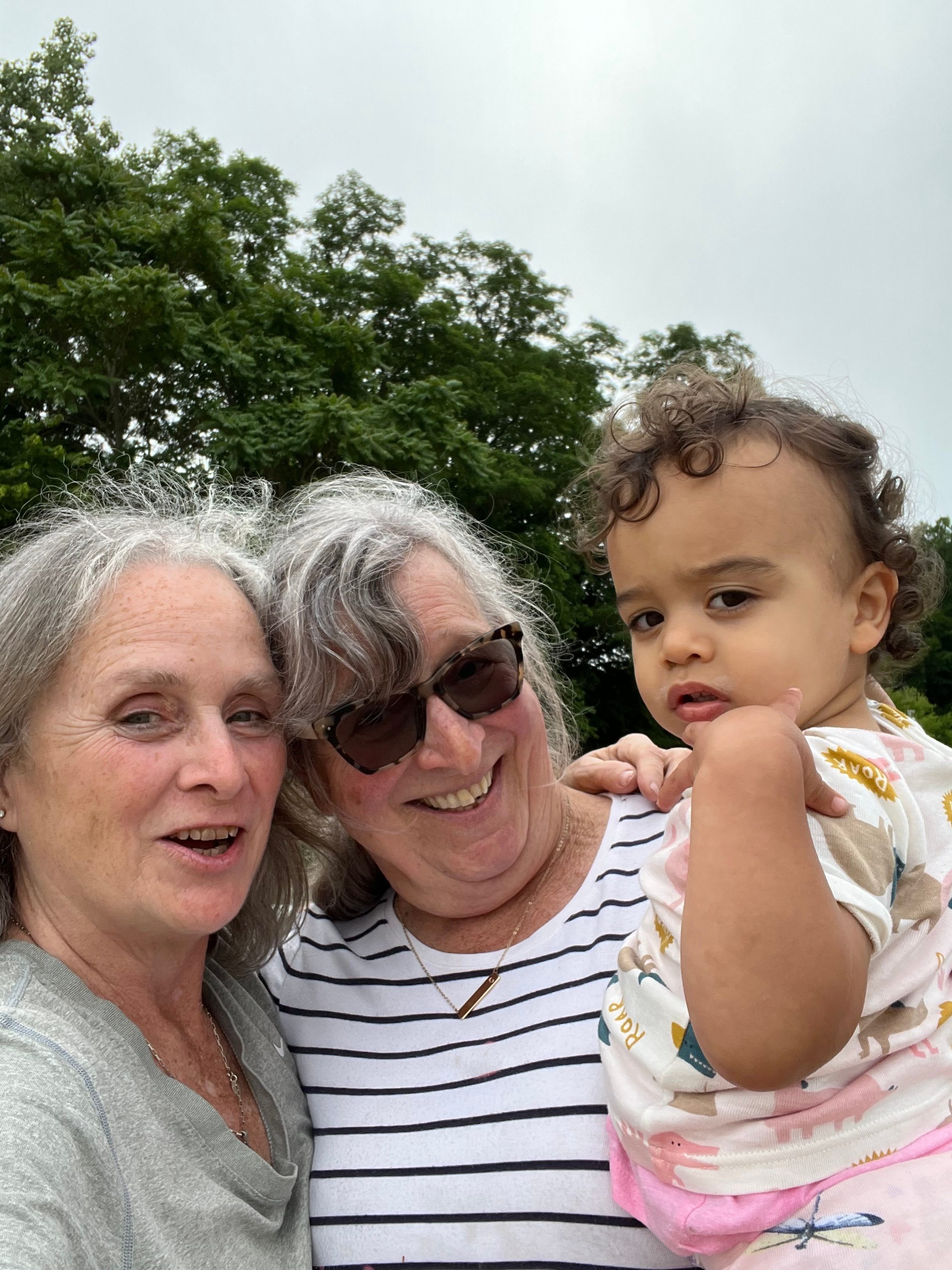
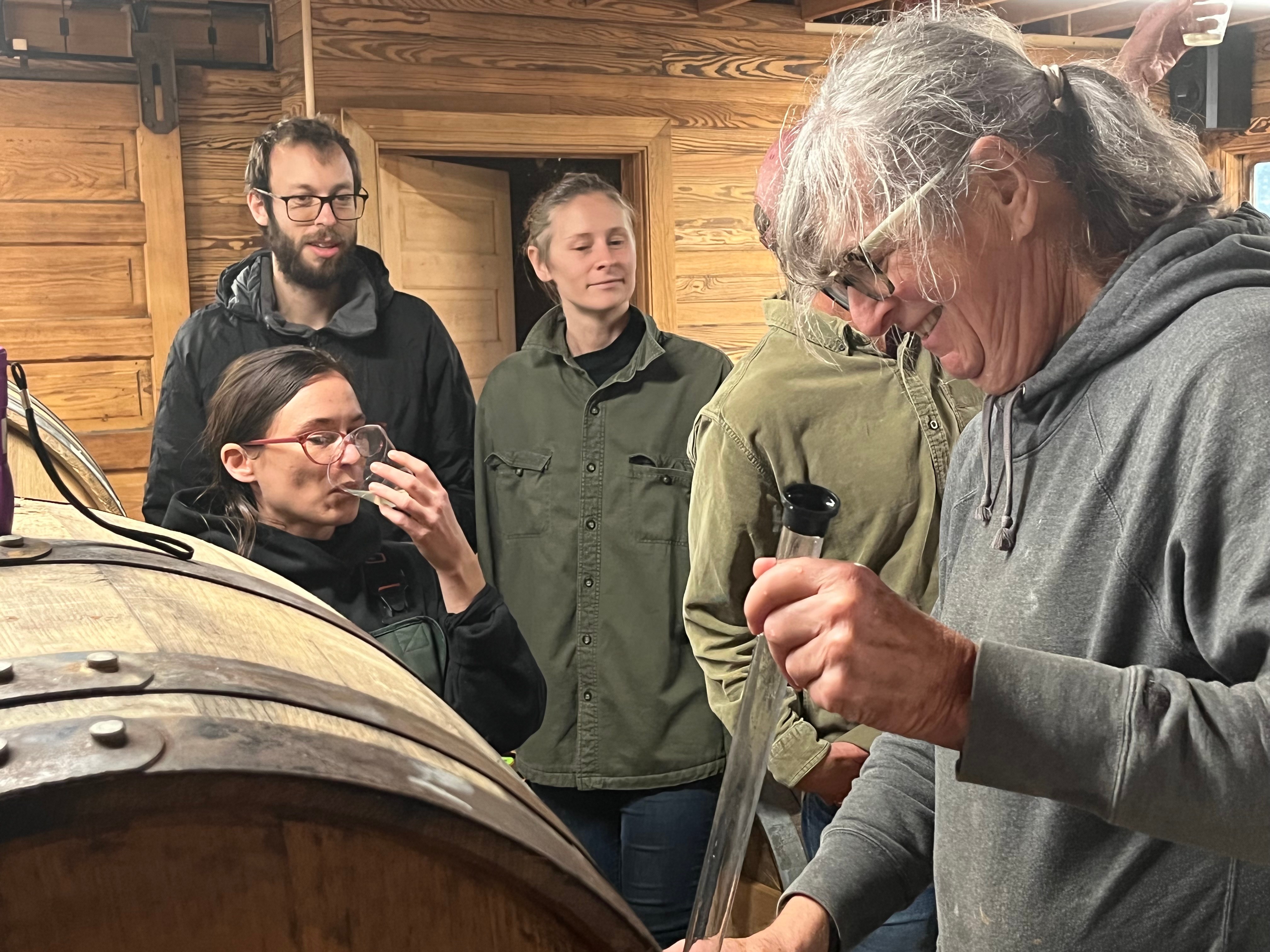
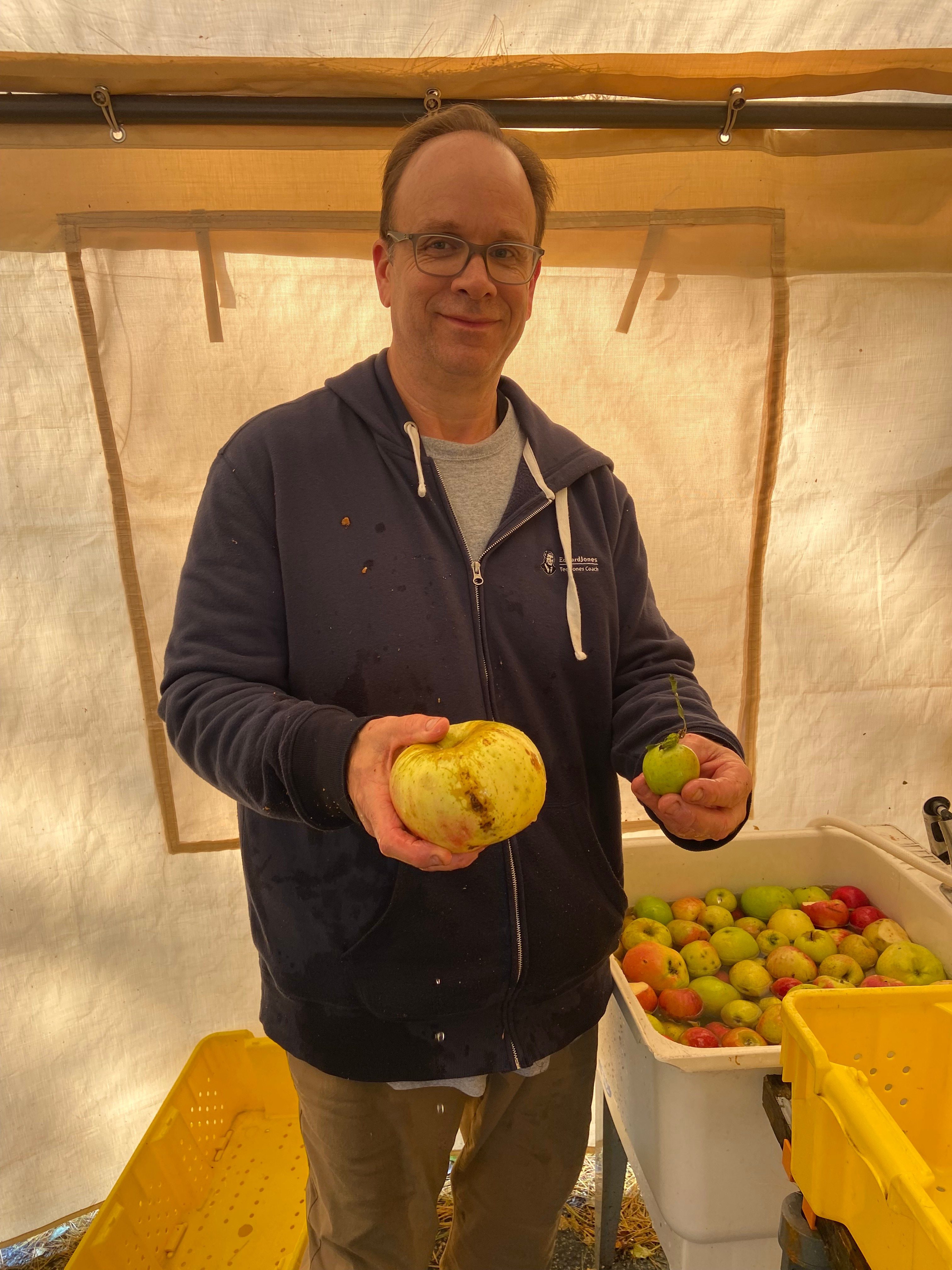
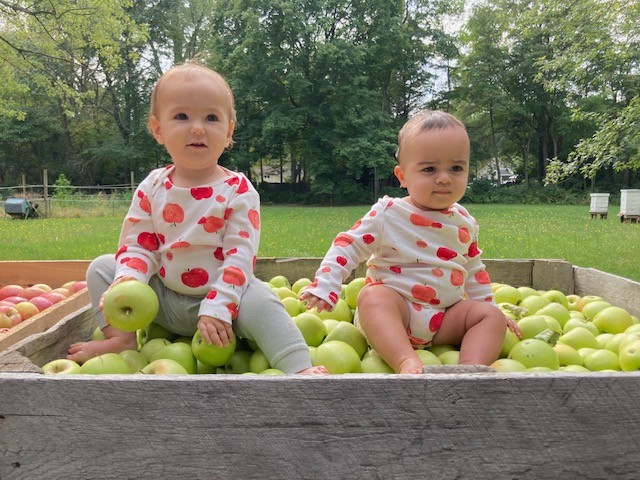
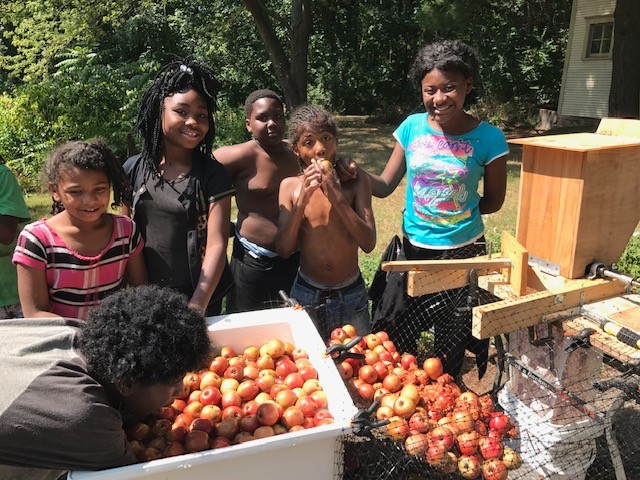
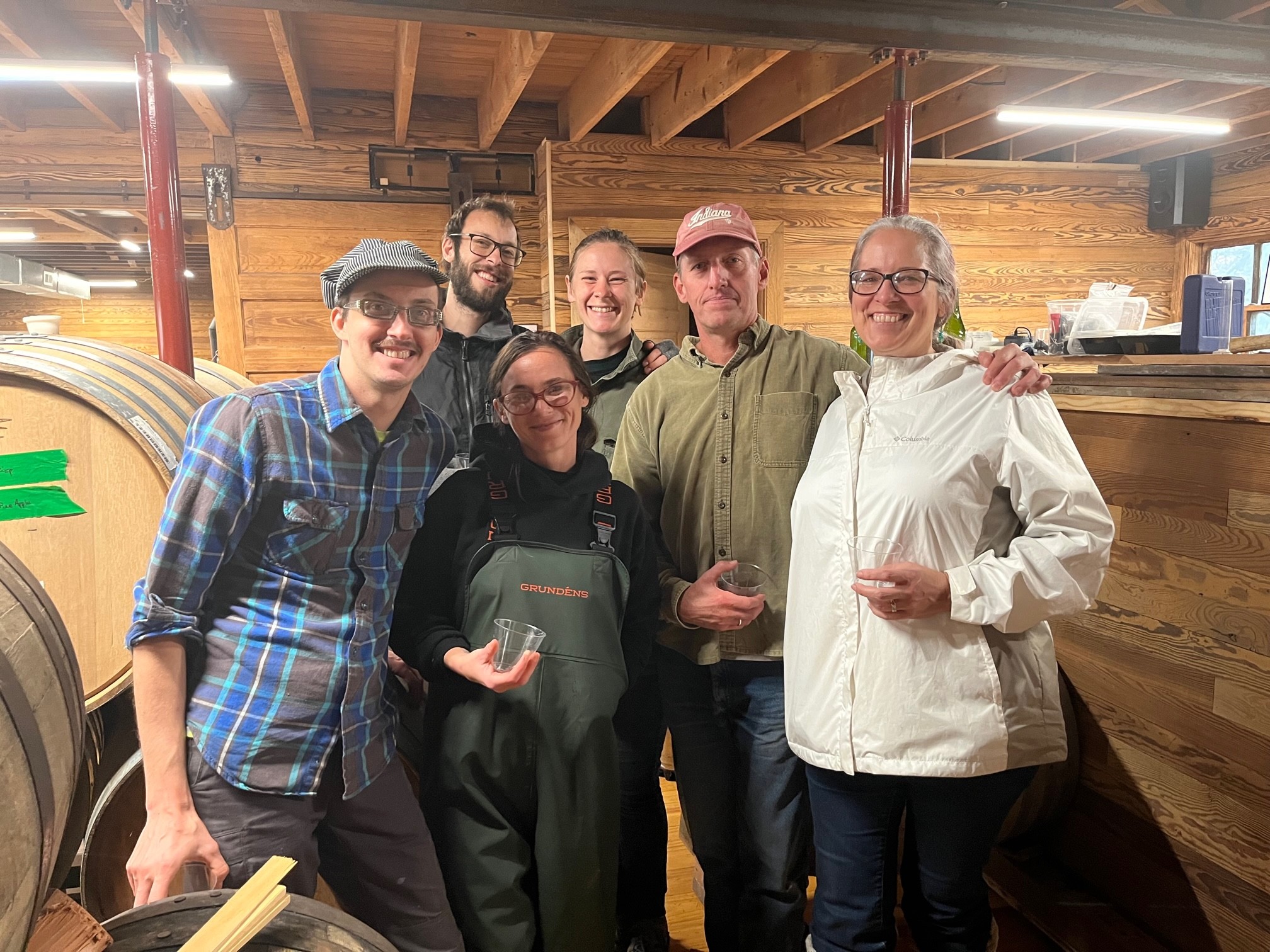
Image Credits
Mary Connors











